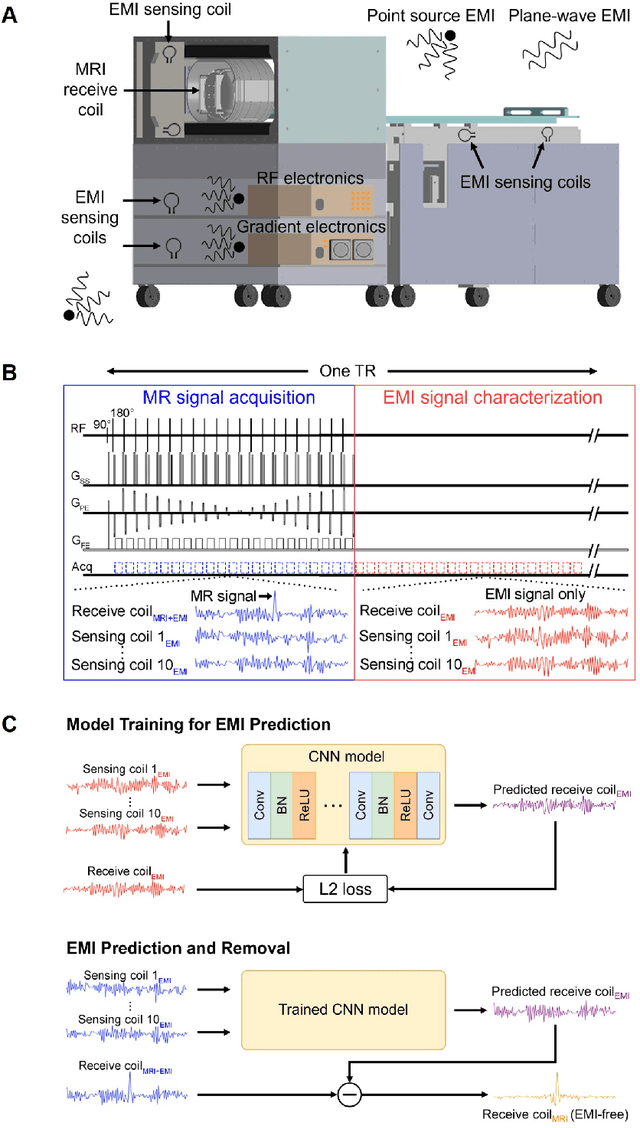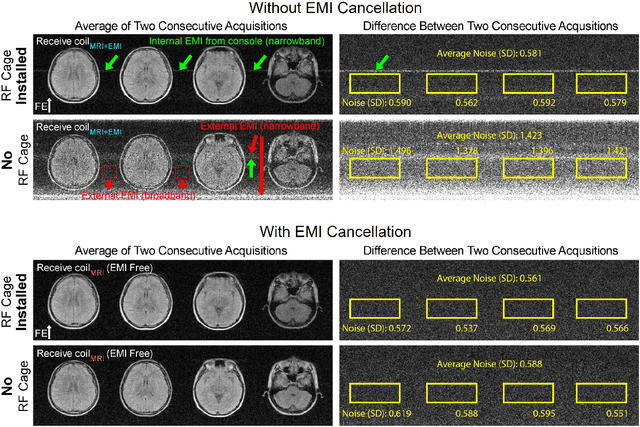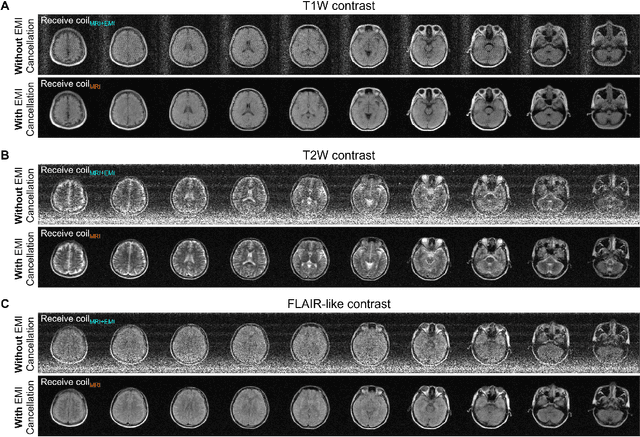Robust Electromagnetic Interference (EMI) Elimination via Simultaneous Sensing and Deep Learning Prediction for RF Shielding-free MRI
Paper and Code
Oct 13, 2022



At present, MRI scans are performed inside a fully-enclosed RF shielding room, posing stringent installation requirement and unnecessary patient discomfort. We aim to develop an electromagnetic interference (EMI) cancellation strategy for MRI with no or incomplete RF shielding. In this study, a simultaneous sensing and deep learning driven EMI cancellation strategy is presented to model, predict and remove EMI signals from acquired MRI signals. Specifically, during each MRI scan, separate EMI sensing coils placed in various spatial locations are utilized to simultaneously sample environmental and internal EMI signals within two windows (for both conventional MRI signal acquisition and EMI characterization acquisition). Then a CNN model is trained using the EMI characterization data to relate EMI signals detected by EMI sensing coils to EMI signals in MRI receive coil. This model is utilized to retrospectively predict and remove EMI signals components detected by MRI receive coil during the MRI signal acquisition window. We implemented and demonstrated this strategy for various EMI sources on a mobile ultra-low-field 0.055 T permanent magnet MRI scanner and a 1.5 T superconducting magnet MRI scanner with no or incomplete RF shielding. Our experimental results demonstrate that the method is highly effective and robust in predicting and removing various EMI sources from both external environments and internal scanner electronics at both 0.055 T (2.3 MHz) and 1.5 T (64 MHz), producing final image signal-to-noise ratios that are comparable to those obtained using a fully enclosed RF shielding. Our proposed strategy enables MRI operation with no or incomplete RF shielding, alleviating MRI installation and operational requirements. It is also potentially applicable to other scenarios of accurate RF signal detection or discrimination in presence of external and internal EMI or RF sources.
 Add to Chrome
Add to Chrome Add to Firefox
Add to Firefox Add to Edge
Add to Edge